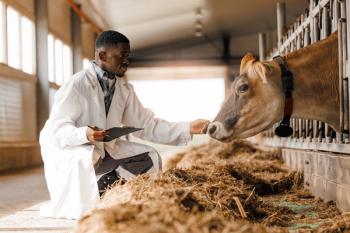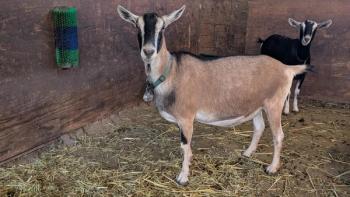
Pennsylvania lawmakers block funding for Penn Vet
Lawmakers denied over $30 million in funding to the school after the university faced criticism over stance on antisemitism
The Pennsylvania House of Representatives denied legislation that would send over $33 million in funding to the University of Pennsylvania’s veterinary school following the resignation of president Liz Magill, after she received criticism that the university tolerated antisemitism from the public, alumni, and donors to the school.
“We are deeply disappointed in last night’s vote in the Pennsylvania House of Representatives. The School of Veterinary Medicine (Penn Vet) is the sole beneficiary of these funds, and the school has continued to fulfill its educational and service missions to the Commonwealth in good faith throughout this six-month impasse, as it has for over 139 years,” the university said in a public statement.1
The bill had failed to get the necessary two-thirds majority vote of the house to proceed with every Democrat in the house supporting the bill while a majority of Republicans in the state senate voted against it. The funding had originally won the majority in 2 different votes before losing this latest vote. The support for the funding is typically fueled by the university’s role in training veterinarian professionals and fighting infectious diseases within the state’s agricultural sector. According to reporting from the Associated Press,2 the funding received from the state makes up a little less than 20% of the college's budget.
“The school is a vital part of Pennsylvania’s agriculture industry: educating the next generation of Pennsylvania’s veterinarians, which is currently facing workforce shortages; providing world class clinical care to Pennsylvania’s agricultural communities, companion animals, working dogs, and wildlife; administering diagnostic testing services to maximize farm productivity and profitability, and food safety; offering surveillance programs to protect our food supply against devastating diseases such as highly pathogenic avian influenza; as well as our important role in disaster management. We hope the state House will reconsider this vote when it reconvenes in 2024,” the university statement concluded.1
Although the funding was rejected, the republican members of the Pennsylvania House of Representatives have begun drafting new legislation that requires any institution or high education that receives state aid in Pennsylvania must adopt a code of effects. The code of ethics must make it clear that calling for genocide is bullying or harassment.
“Until more is done at the university in terms of rooting out, calling out, and making an official stance on antisemitism being against the values of the university, I cannot in good conscience support this funding,” said Bryan Cutler, State House Republican Minority Leader.1
References
- Statement Regarding Penn Vet's FY24 State Appropriation. University of Pennsylvania School of Veterinary Medicine. December 14, 2023. Accessed December 20, 2023. https://www.vet.upenn.edu/about/news-room
- Pennsylvania lawmakers defeat funding for Penn amid criticism over school’s stance on antisemitism. Associated Press. December 13, 2023. Accessed December 20, 2023. https://apnews.com/article/pennsylvania-antisemitism-universities-israel-gaza-6087632cd5c449a7b1498edde86f041e
Newsletter
From exam room tips to practice management insights, get trusted veterinary news delivered straight to your inbox—subscribe to dvm360.






